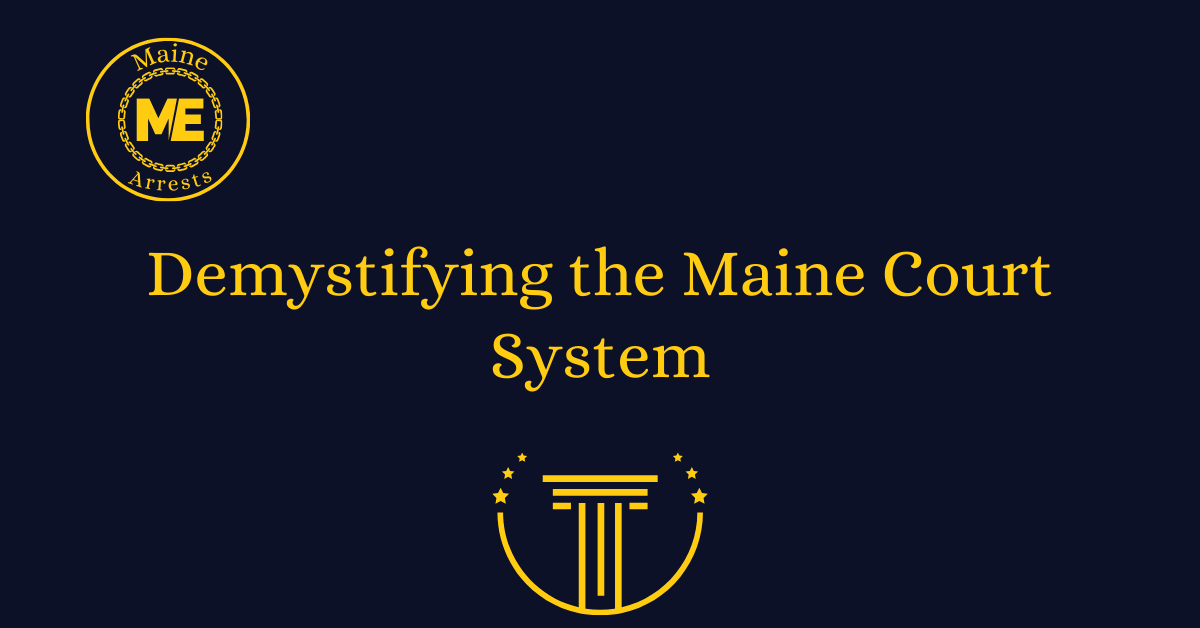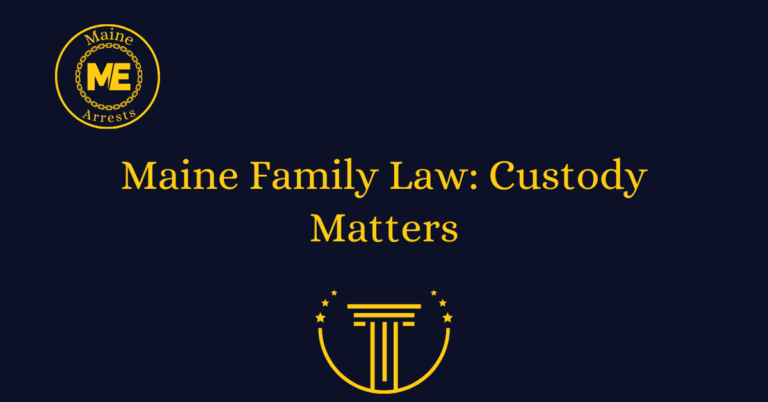Demystifying the Maine Court System
Are you curious about how the Maine Court System operates? Look no further! In this comprehensive guide, we will demystify the inner workings of the Maine Court System, providing you with a clear understanding of its structure and functions.
From small claims courts to the Supreme Judicial Court, we will delve into each level of the Maine Court System, shedding light on the roles and responsibilities of judges, attorneys, and court personnel. Whether you are a law student, a legal professional, or simply a curious citizen, this guide will equip you with the knowledge needed to navigate the Maine Court System with confidence.
Understanding the Structure of the Maine Court System
As we embark on this comprehensive guide, let’s first gain an understanding of the structure of the Maine Court System. By familiarizing ourselves with the different levels of the court system, we can better navigate its intricacies and appreciate its importance.
The District Court: Resolving Disputes in the Community
The District Court serves as the foundation of the Maine Court System. This is where most legal matters begin their journey. Small claims cases, traffic violations, and misdemeanors are handled at this level. Judges in this court play a crucial role in ensuring justice is served and disputes are resolved.
The Superior Court: Handling More Complex Cases
When a legal matter requires further attention or involves more serious offenses, it is elevated to the Superior Court. This court deals with felony cases, civil suits, and family matters like divorce and child custody. The judges in this court possess extensive legal knowledge and expertise in handling complex cases.
The Supreme Judicial Court: The Ultimate Legal Authority
The Supreme Judicial Court stands at the pinnacle of the Maine Court System. This is the highest court in the state, and its decisions are binding on all lower courts. Justices of the Supreme Judicial Court are responsible for interpreting the law, ensuring its constitutionality, and setting legal precedents that shape the future of the Maine Court System.
The Roles of Judges, Attorneys, and Court Personnel
Now that we have a clear understanding of the different levels of the Maine Court System, let’s explore the roles and responsibilities of the key players within it.
Judges: The Guardians of Justice
Judges are the impartial arbiters of the law, ensuring fair trials and upholding the principles of justice. They preside over cases, make legal rulings, and deliver judgments. Their wisdom and integrity are vital to maintaining the integrity of the Maine Court System.
Attorneys: Advocates for Justice
Attorneys play a crucial role in the Maine Court System, representing clients and presenting their cases. They are legal experts who possess a deep understanding of the law and use their skills to advocate for their clients’ interests. Attorneys are essential in ensuring a fair and balanced legal process.
Court Personnel: The Backbone of the System
Behind the scenes, there is a dedicated team of court personnel who keep the Maine Court System running smoothly. From clerks who assist with administrative tasks to court reporters who create accurate records of proceedings, these individuals are essential in supporting the court process.
Navigating the Maine Court System with Confidence
Whether you are a law student, a legal professional, or simply a curious citizen, this comprehensive guide will equip you with the knowledge needed to navigate the Maine Court System with confidence. By understanding its structure and the roles of the key players, you can engage with the court system effectively and contribute to the pursuit of justice.
FAQs
What is the structure of the Maine Court System?
The Maine Court System consists of several levels. At the lowest level are the District Courts, which handle smaller cases such as traffic violations and misdemeanors. The next level is the Superior Court, which deals with more serious cases, including felonies and civil disputes. At the top is the Supreme Judicial Court, which is the highest appellate court in the state.
How can I find information about a specific court case?
To find information about a specific court case in Maine, you can use the Online Case Search tool provided by the Maine Judicial Branch. This tool allows you to search for cases by name, case number, or date. It provides information about the case status, scheduled events, and case documents.
What are the different types of cases heard in the Maine Court System?
The Maine Court System handles a wide range of cases, including criminal cases, civil cases, family cases, probate cases, and juvenile cases. Criminal cases involve offenses against the state, civil cases involve disputes between parties, family cases involve matters such as divorce and child custody, probate cases involve the administration of estates, and juvenile cases involve offenses committed by minors.
How do I file a lawsuit in the Maine Court System?
To file a lawsuit in the Maine Court System, you need to start by preparing the necessary documents, including a complaint that outlines your claims and the relief you seek. You then need to file these documents with the appropriate court, paying any required filing fees. After filing, you will need to serve the defendant with a copy of the lawsuit and follow the court’s procedures for moving the case forward.
Can I represent myself in court or do I need an attorney?
You have the right to represent yourself in court, but it is generally recommended to seek the assistance of an attorney, especially for complex cases. Attorneys have knowledge of the law and courtroom procedures, which can greatly improve your chances of success. If you cannot afford an attorney, you may be eligible for free or low-cost legal assistance through organizations such as Legal Services.
How long does it take for a case to be resolved in the Maine Court System?
The time it takes for a case to be resolved in the Maine Court System can vary greatly depending on the complexity of the case, the court’s schedule, and other factors. Some cases can be resolved relatively quickly, while others may take several months or even years. It is best to consult with an attorney or check with the specific court handling your case for more accurate estimates of timelines.







